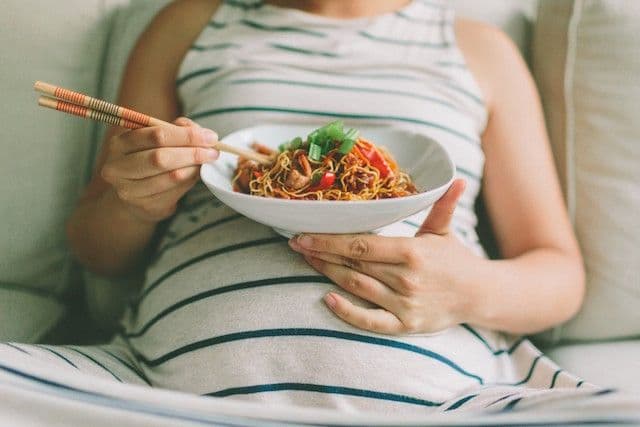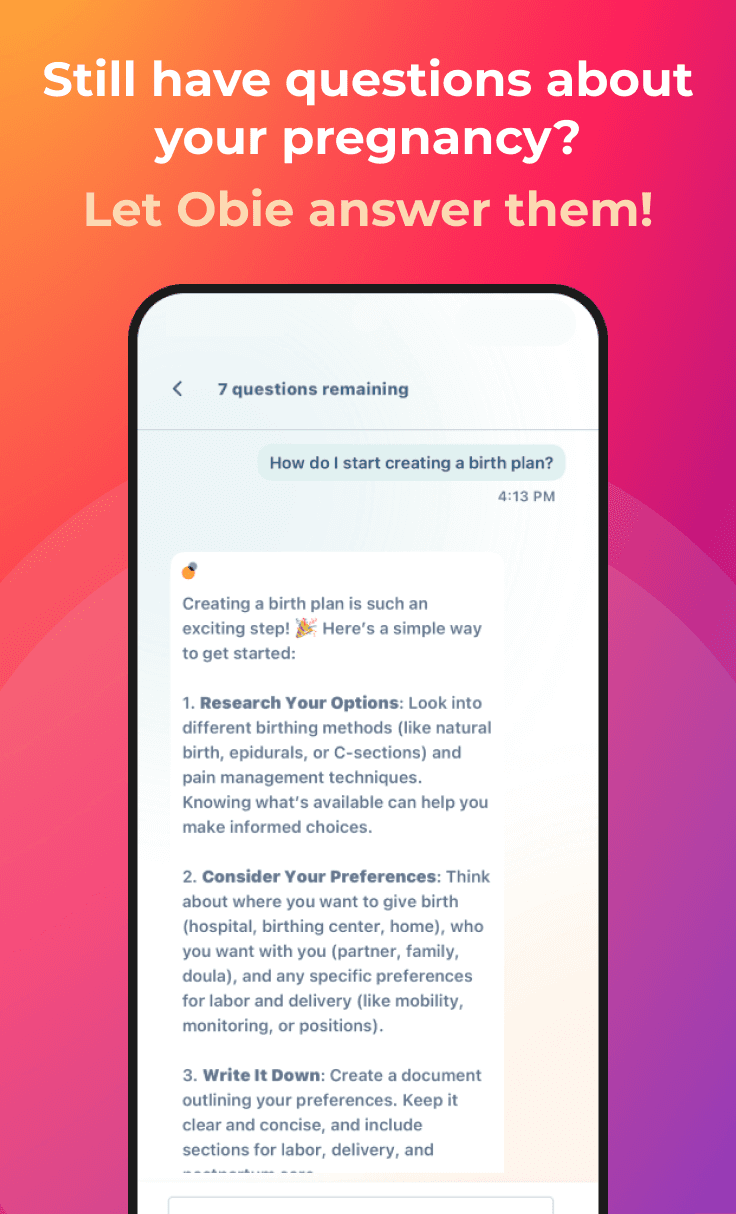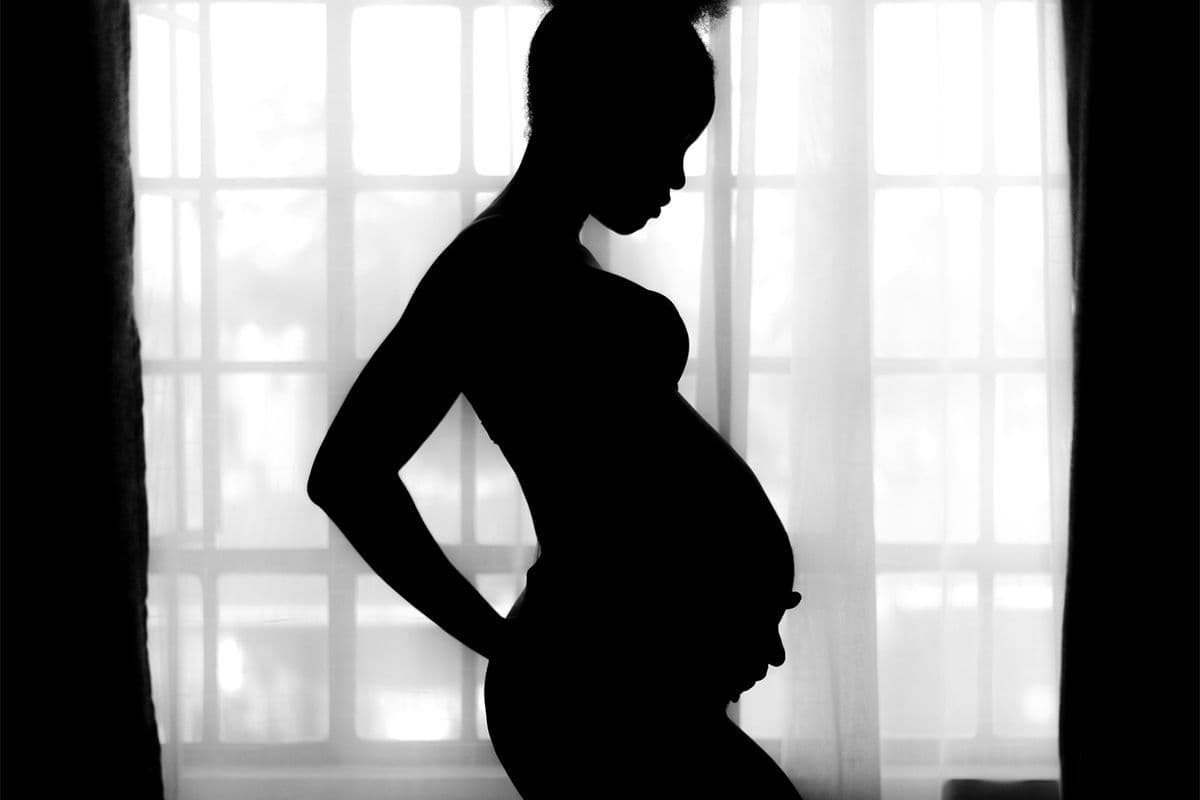Myths About Eating During Pregnancy
Pregnancy Myths
Obie Editorial Team

There are many myths during pregnancy and so many revolve around food. Learn what's fact and what's fiction.
Myth: Eat twice as much, you're eating for two
Fact: A pregnant woman may be eating for two, but one of them, the fetus, only weighs a few pounds. Your body needs between 200 and 300 extra calories when you are pregnant (up to 500 near the end of your pregnancy). That is about the amount in one cooked chicken breast, without the skin. or a cup of yogurt. So, yes, you should eat a little more while pregnant, but not that much more.
Myth: Salt will make you swell up
Fact: Salt is an essential nutrient, even when you are pregnant and it should not be removed from your diet during pregnancy. Some swelling in pregnancy is normal. If your swelling is excessive (talk to your doctor!) then you may want to consider the other foods you are eating to be sure you are getting enough protein and water. Also, take a serious look at the amount of time you are giving yourself to rest. Rule of thumb, salt your food to taste.
Myth: You need to watch your weight carefully
Fact: That actually is true. The amount of weight you gain may say something about your overall health. You can gain a lot of weight eating junk food, or you can gain a lot of weight eating the right amount of healthy foods. In either case, it's usually that you eat too many calories. To avoid problems in pregnancy, pay attention to the foods you are eating. Keep a well-balanced diet. Keep a list of everything you eat for a couple of days, look over the list and see how your eating stacks up. If you need to make changes, do so. While the scale cannot tell you exactly if you are eating well, it does tell you whether you are gaining too much weight as normal weight gain in pregnancy prevents complications. Check the recommended weight gain.
Myth: The baby will just take what it needs from you
Fact: Your baby is being built from many different building parts including protein, a nutrient that your body uses to build tissues, but does not store extra quantities for use in building your baby. If you are not eating adequate protein, your health will suffer as your body begins to break down your tissues (muscle) to feed the baby. The only source of protein your baby has is from the food you eat.
Myth: If you eat a little less, the baby will take some of the extra fat off you
Fact: Your baby is not being built from much fat. Fat is a way your body stores glucose, the main source of energy for your body. The difference is that glucose can not be made into protein to build your baby's tissues. If you are not eating enough, your body will have to break down tissues (muscle) to build the baby from and you will get sick and weak.
Myth: A low-fat diet will help keep the extra weight off
Fact: Fat is essential to your body's metabolism of water-soluble vitamins, it is not the enemy. Fat is no more the culprit for overweight than carbohydrates or proteins are. The problem is not that it is eaten, but that too much is eaten or that there is an imbalance of the different ingredients in food. Too much food of any type will be stored by your body for later use as fat. Low-fat diets can be dangerous in pregnancy because most foods considered "fatty" are good sources of protein, such as eggs, meats, and cheese. There are "healthy" fats and "unhealthy" fats and you need to educate yourself which are which. A diet low in protein foods is equally not desirable in pregnancy.









